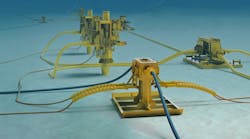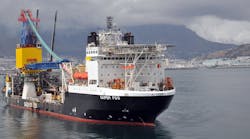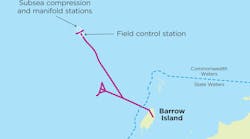Offshore staff
GALVESTON, Texas– Infield Systems Ltd. has released its new “Deepwater and Ultra-Deepwater Market Report” at the Subsea Tieback Forum & Exhibition.
Infield says the eighth edition of the report provides a comprehensive forecast and analysis of investment from operators in the deepwater and ultra-deepwater arenas, and examines trends impacting the global deepwater and ultra-deepwater sector.
The report also includes detailed forecasts of capital expenditure on the oil and gas platform, subsea, pipeline and control line markets, and analyzes the policy and market conditions impacting deepwater exploration and development.
The report examines deepwater markets in West Africa, Gulf of Mexico, Brazil, and the Asia/Pacific region. This includes a comprehensive analysis of the strategies of the major operators in the global deepwater scene, including Petrobras, Shell, ExxonMobil, BP, Chevron, and Total.
Infield says that in the 2011-2015 forecast period, deepwater capital expenditure (capex) in Africa will overtake capex in Latin America. Deepwater capex in Latin America is expected to remain strong, but capex in Africa is expected to nearly double in 2011-15 compared to 2006-10. This is expected to be driven by higher forecast capex from Total, BP, and Chevron in West Africa, as well as from independents, including Tullow and Noble Energy, making a foray into smaller West African markets such as Ghana, Equatorial Guinea, and Congo (Brazzaville).
Despite the Macondo well oil spill, Infield says it expects deepwater capex in the GoM to stay robust throughout the forecast period; and to remain, along with Brazil and West Africa, one of the three major areas for deepwater development. While Brazil is dominated by Petrobras, and in Angola and Nigeria the majors rule, in the GoM independents are still expected to play a substantial role, as they have done in the past.
3/7/2012




